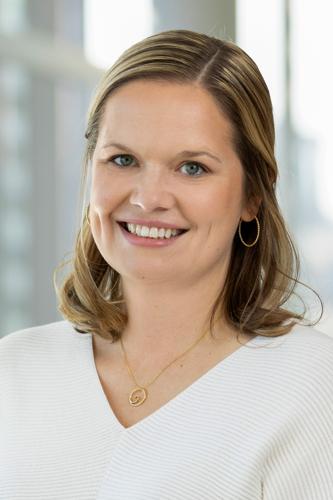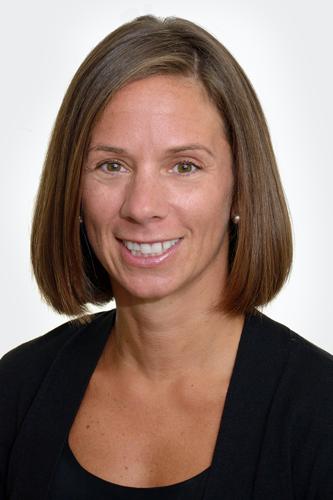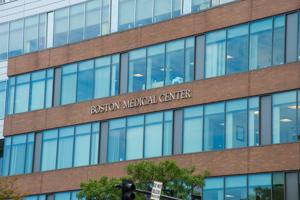The Pulmonary and Allergy Clinic at Boston Medical Center provides allergy, asthma, and respiratory care to children from birth to age 21. We work as a team with your child’s primary care provider (PCP), daycare, school, or after school program. Our goal is to create a complete treatment plan that fits your child’s individual needs.
Contact Us
In clinic: Monday, Tuesday, Thursday and Friday from 8:00 AM - 5:00 PM. On-call: Monday-Friday from 8:00 AM-5:00 PM.
Specialty Clinics
Severe Asthma Program
Our Severe Asthma Program is designed for children who have asthma that is hard to control. We can help children who:
- Have needed multiple courses of steroids for flares
- Have had many trips to the Emergency Department
- Take medicines for asthma but the treatment is not working
- Miss school days or are unable to do activities because of asthma
- Have been hospitalized for asthma
Our program includes two pulmonologists, two allergists, a nurse practioner and a specially trained asthma nurse who work closely with your child’s PCP, school, or daycare to create an individual treatment plan for your child. We are able to perform allergy skin tests and breathing tests at your child’s first visit.
Our team also includes a pharmacy liaison who helps families get approvals for inhalers, injections, and any other medicines their child needs. Because we know asthma treatments (especially injections) can be stressful for children, our nurse is trained in mindfulness and relaxation techniques and spends time making our patients feel comfortable.
Food Allergy Progam
We offer highly specialized care to children with known or suspected allergies to foods including peanuts, treenuts, fish, shellfish, milk, eggs, wheat, soy, and other foods.
We use focused diagnostic testing to accurately diagnose the allergy and create a management plan. Testing may include laboratory testing, allergy skin testing, and oral food challenges. Oral food challenges can help us learn if your child can eat a specific food without having an allergic reaction. These challenges are highly specialized tests that must take place in a closely monitored setting and are not available at all hospitals. .
We know that managing food allergies can be difficult and expensive. At BMC, we offer extra support for families who may have trouble getting to appointments or paying for treatment.
Aerodigestive Program
We offer a specialized aerodigestive program for children with breathing, swallowing, and feeding problems. Our experienced team includes all the specialists your child may need to see for their condition, including:
- Pulmonologist
- Ear, nose, and throat doctor (otolaryngologist)
- Gastroenterologist
- Speech and language therapist
- Dietician
- Allergist
Our team works closely together to diagnose and treat all types of aerodigestive problems and will work with your family and your child’s PCP to coordinate all your child’s care.
Programs and Services
We care for children with a range of conditions, including:
- Aerodigestive conditions, such as chronic cough, eosinophilic esophagitis, or swallowing or feeding problems
- Allergies (including allergies to food, insect, medication, pets, mold, environmental factors, and other triggers)
- Asthma (including severe asthma) and other lung disorders
- Chronic cough
- Hay fever (allergic rhinitis and conjunctivitis)
- Immunodeficiencies (recurrent infections and problems with the immune system)
- Lung Disease related to Prematurity
- Pulmonary complications of sickle cell disease (SCD)
- Severe lung disease (including bronchiectasis and primary ciliary dyskinesia)
- Sinusitis
- Skin rash (such as eczema and hives)
- Sleep-disordered breathing
Our Team
Pediatric Allergists and Pulmonologists
Karissa Brazauskas, MD

Robyn T. Cohen, MD, MPH

Quindelyn Cook, MD


Patient Resources
Pediatric Asthma
Allergy and Asthma Programs
The Clinic also provides a number of services and programs to help children stay well.
Information for Parents
Your First Visit
When your child first visits the Pulmonary and Allergy Clinic at BMC, we will take a detailed medical history and perform a physical examination. Depending on your child’s condition, we may also run some tests, such as:
- Breathing tests, also called pulmonary function tests, which can help the doctor accurately diagnose your child’s condition and then check to see how well medicines are working. Most children ages 5 and older are able to do breathing tests.
- Exercise challenge tests to help us diagnose exercise-induced asthma. If our team suspects your child has an allergy, we will use skin tests to help find specific sensitivities.
- We may also perform an x-ray of the chest.
In addition to testing and treatment, we provide many services and programs to help children stay well. These include:
- Home allergy inspections
- Housing information
- Home allergy control
- Interpreter services
- Help getting medicine and supplies
Research Overview
Pulmonary and Allergy Clinic staff have taken part in numerous local and national research studies concerning current questions in asthma and allergy. Specifically, Suzanne Steinbach and Lois Doerr worked on the NIH-sponsored Inner-City Asthma Study project which showed that home allergen control reduces asthma symptoms for inner-city children and that better communication between physicians and families about asthma symptoms improves asthma control as well. Related publications include:
1. Cohen RT, Rodeghier M, Kirkham FJ, Rosen CL, Kirkby J, DeBaun MR, Strunk RC. Exhaled Nitric Oxice: Not Associated with Asthma, Symptoms, or Spirometry in Sickle Cell Anemia. J Allergy Clin Immunol. 2016, in press.
2. Vo P, Bair-Merritt M, Camargo CA, Eisenberg S, Long W. Individual factors, neighborhood social context, and asthma at age 5 years. J Asthma 2016 in press.
3. Boyer D, Thomson C, Cohen R, Rao D, Dell S, Rayment J, Wang R, Dy FJ, Wambach J, Tam-Williams J, Simon D, Price E, Oermann CM, Singh A, Rettig JS, Duncan ED, Baker CD, Liptzin DR, Moore PE. ATS Core Curriculum 2016: Part III. Pediatric Pulmonary Medicine. Annals of the American Thoracic Society 13 (6): 955-966, 2016.
4. Cohen RT, Strunk RC, Rodegheir M, Rosen CL, Kirkham FJ, Kirkby J, DeBaun MR. Pattern of lung function is not associated with prior or future morbidity in children with sickle cell anemia. Annals of the American Thoracic Society, 2016, Aug; 13(8):1314-23. PMID: 27300316.
5. Cohen RT, Klings EK, Strunk RC. Sickle cell disease: wheeze or asthma? Asthma in Research and Practice, 1:15, 2015.
6. Teach SJ, Gill MA, Togias A, Sorkness CA, Arbes SJ Jr, Calatroni A, Wildfire JJ, Gergen PJ, Cohen RT, Pongracic JA, Kercsmar CM, Khurana Hershey GK, Gruchalla RS, Liu AH, Zoratti EM, Kattan M, Grindle KA, Gern JE, Busse WW, Szefler SJ. Preseasonal treatment with either omalizumab or an inhaled corticosteroid boost to prevent fall asthma exacerbations. J Allergy Clin Immunol. 2015 Dec;136(6):1476-85.PMID 26518090, PMCID 4679705.
7. Vo P, Bair-Merritt M, Camargo CA. The potential role of vitamin D in the link between obesity and asthma severity/control in children. Expert Rev Respir Med 9 (3): 309-25, 2015.
8. Sheares BJ, Mellins RB, Dimango E, Serebrisky D, Zhang Y, Bye MR, Dovey ME, Nachman S, Hutchinson V, Evans D. Do patients of subspecialist physicians benefit from written asthma action plans? Am J Resp Crit Care Med 2015, 191 (12): 1374-73, PMIC 25867075.
9. Hayden LP, Hobbs BD, Cohen RT, Wise RA, Checkley W, Crapo JD, Hersch CP. Childhood pneumonia increases risk for chronic obstructive pulmonary disease: the COPDGene study. Respiratory Research, 16 (1): 115, 2015. PMID 26392057, PMCID 4578796.
10. Belfort MB, Cohen RT, Rhein LM, McCormick, MC. Preterm infant growth and asthma at age 8 years. Archives of Disease in Childhood, Fetal and Neonatal Edition, 101 (3) F230-4, 2015. PMID 26354369.
11. Rice JL, Matlack KM, Simmons MD, Steinfeld J, Laws MA, Dovey ME, Cohen RT. LEAP: A randomized-controlled trial of a lay-educator inpatient asthma education program. Patient Education and Counseling, pii: S0738-3991(15)30006-9, 2015. PMID 26210342.
12. He H, Butz A, Keet CA, Minkovitz CS, Hong X, Caruso DM, Pearson C, Cohen RT, Wills-Karp M, Zuckerman BS, Hughes ME, Wang X. Preterm birth with childhood asthma: the role of degree of prematurity and asthma definitions. American Journal of Respiratory and Critical Care Medicine, 192 (4): 520-523, 2015. PMID 26278798, PMCID 4595670.
13. Vance LD, Rodeghier M, Cohen RT, Rosen CL, Kirkham FJ, Strunk RC, DeBaun MR. Increased risk of severe vaso-occlusive episodes after initial acute chest syndrome in children with sickle cell anemia less than 4 years old: Sleep and asthma cohort. American Journal of Hematology, 90 (5): 37-1375, 2015. PMID 25619382, PMCID 4409481.
14. DeBaun MR, Rodegheir M, Cohen RT, Kirkham FJ, Rosen CL, Roberts I, Cooper B, Stocks J, Wilkey O, Insa, BD, Warner JO, Strunk RC. Factors Predicting Future ACS Episodes in Children with Sickle Cell Anemia. American Journal of Hematology, 89 (1): e212-217, 2014. PMID 25088663, PMCID 4866602.
15. Strunk RC, Cohen RT, Cooper BP, Rodeghier M, Kirkham FJ, Warner JO, Stocks J, Kirkby J, Roberts I, Rosen CL, Craven EI, DeBaun MR. Wheezing symptoms and parental asthma are associated with a doctor diagnosis of asthma in children with sickle cell anemia. Journal of Pediatrics 164(4): 821-826, 2014. PMID 24388323, PMCID 3962704.
16. Cohen RT, Strunk RC, Field JF, Rosen CL, Kirkham FJ, Redline S, Stocks J, Rodeghier MJ, DeBaun, MR. Environmental Tobacco Smoke and Airway Obstruction in Children with Sickle Cell Disease. Chest, 144 (4): 1323-9, 2013. PMID 23681054, PMCID 3787918.
Residency and Fellowship Information
The Pulmonary and Allergy Clinic provides training to pediatric residents from the Boston Combined Residency Program, a joint effort of Boston Children’s Hospital and Boston Medical Center. The Clinic also provides training opportunities to fellows in the Boston Medical Center Allergy Fellowship Program.
 en
en 

 Français
Français Deutsch
Deutsch Italiano
Italiano Español
Español Tiếng Việt
Tiếng Việt Kreyol ayisyen
Kreyol ayisyen